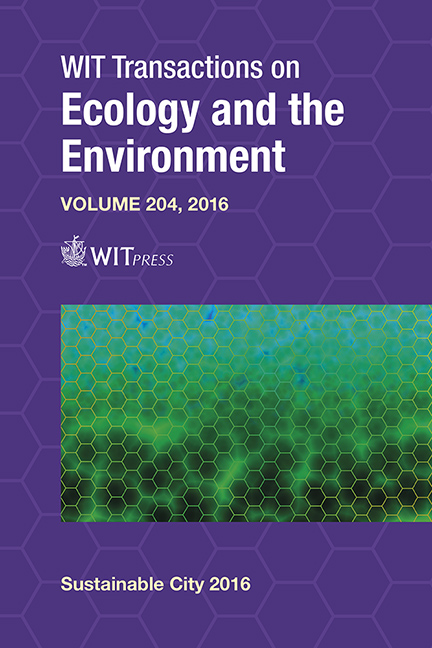Urban Green Areas In The Days Of Urbanization: The Case Of Atatürk Forest Farm, Ankara, Turkey
Price
Free (open access)
Transaction
Volume
204
Pages
11
Page Range
323 - 333
Published
2016
Size
1,973 kb
Paper DOI
10.2495/SC160281
Copyright
WIT Press
Author(s)
E. Durusoy, D. Tuzcuoglu, A. Akcabozan
Abstract
Urban green areas, an important layer of urban nature, provide various environmental qualities as well as a number of social opportunities and aesthetic richness. They fulfil a number of functions in an urban context as a comprehensive tool for the long term protection of environmental sustainability through improving the quality of life. Hence, their successful conservation is crucial to achieving a sustainable level of urban development.
Atatürk Forest Farm (AFF), one of the biggest urban green areas of Ankara and the first urban farm of Turkey, was founded in 1937 for urban agricultural encouragement. AFF, as the private farm of Kemal Atatürk – the founder of the Turkish Republic, is also used as a laboratory to carry out experiments combining modern farming methods with industrial production. Indeed, AFF can be explained as an innovative green infrastructure for Ankara, the capital of Turkey. However, the speed of urbanization as well as current policies creates severe strains on AFF. Connected to these, the sustainable future of AFF is threatened by various construction activities, land privatizations, ownership divisions, etc.
At this point, by highlighting the benefits and challenges of urban green spaces, this paper explains the critical discussion of urbanization on greeneries with the help of the AFF case. The study will explore the importance of AFF with its planning history and location. It further investigates urban policies and of this unique green space of Ankara. Connected to the information gathered, the paper ends with a summary on urban green areas.
Keywords
urban green areas, transformation, sustainability, Atatürk Forest Farm (AFF)





